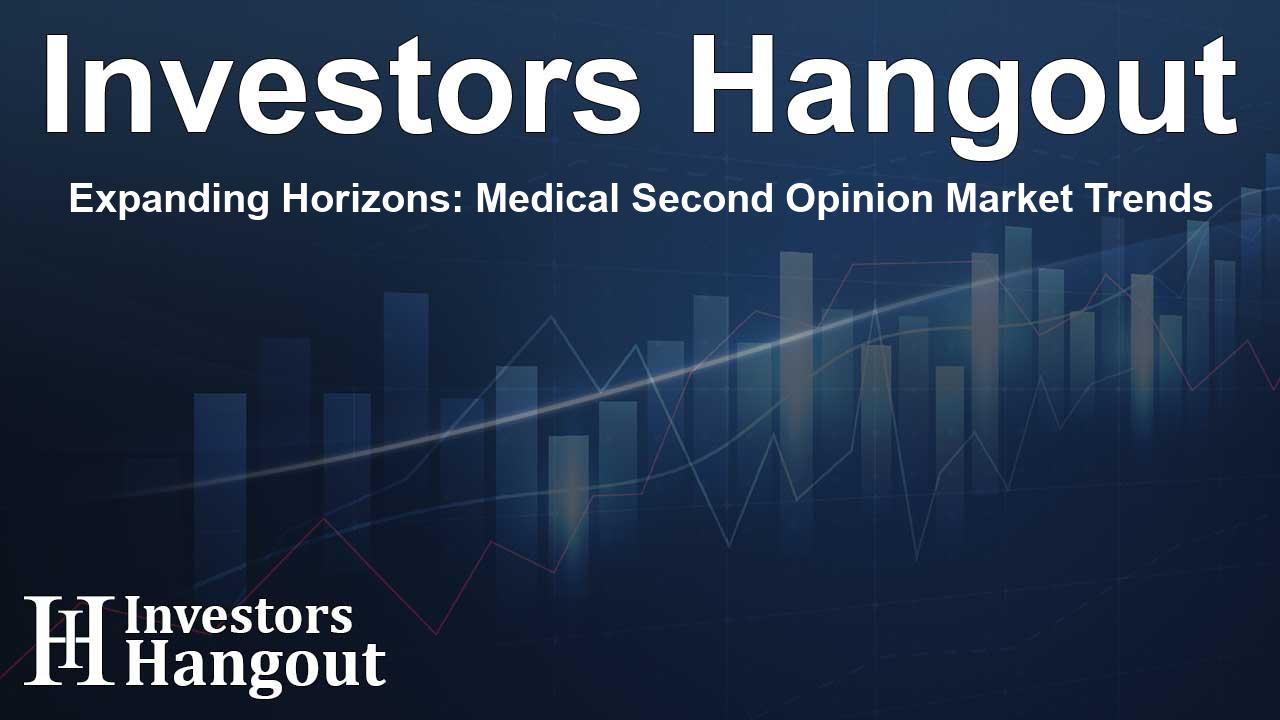Expanding Horizons: Medical Second Opinion Market Trends

Growth Potential of the Medical Second Opinion Market
The medical second opinion market is experiencing significant growth, expected to reach a remarkable USD 12.7 billion in the coming years. This surge is fueled by a growing emphasis on preventing misdiagnoses and the integration of telemedicine, which has transformed how patients access medical advice and validation.
Understanding the Shift Towards Second Opinions
Traditionally, seeking a second opinion involved a patient’s desire for reassurance. However, the landscape is evolving. Today, getting a second opinion is considered a critical aspect of value-based healthcare, particularly important given the alarming statistics regarding misdiagnosis. Recent studies indicate that misdiagnosis occurs in approximately 11% of cases worldwide, leading to increased advocacy for additional medical insights.
Rising Demand for Validation
As healthcare becomes more complex, patients, healthcare providers, and insurers increasingly rely on obtaining second opinions to confirm diagnoses. This is especially true for conditions like cancer, where the stakes are incredibly high, influencing treatment options and emotional resilience. Notably, approximately one in three cancer patients pursues alternate evaluations to ensure they receive the best care.
Market Segmentation and Key Drivers
The medical second opinion market can be segmented by disorder and service provider. Cancer, accounting for 33% of the total market, leads the way as patients seek validation from specialized cancer centers. Following this, cardiac disorders represent 20% of the market. The need for expert consultations is further amplified by factors that include high emotional stakes and complex treatment options.
From Hospitals to Digital Platforms
In 2024, hospitals provided about 55% of all second opinions. However, with the rise of digital health platforms and telemedicine, companies dedicated to second opinion services are gaining ground, capturing 25% of the market share. This segment is growing rapidly, anticipated to expand at nearly 19% CAGR, facilitating timely access to world-renowned specialists regardless of geographic limitations.
Regional Insights: The U.S. and Japan
The United States is a dominant player in the medical second opinion market, representing about 40% of the global share. High healthcare costs and exceptional access to specialist care contribute to this maturity. Major growth drivers include the chronic occurrence of diagnostic errors, leading to nearly 12 million cases annually.
Innovative Approaches and Developments
Recent developments in telemedicine signal a promising future for second opinions. Major hospitals have transitioned to virtual second opinion programs, and telemedicine platforms are incorporating AI-based triage systems. These innovations have been instrumental in ensuring patients can connect with specialists efficiently.
Emerging Trends in the Market
The integration of AI in diagnostics, alongside rising patient empowerment, indicates a transformative phase for the medical second opinion market. Over 60% of second opinions in the U.S. are now delivered virtually, making this process not only more accessible but also cost-effective. Patients are increasingly seeking validated opinions from international centers of excellence, especially for rare diseases.
Insurance's Role in Driving Second Opinion Adoption
As value-based care models expand, health insurers are playing a pivotal role in promoting second opinions. By integrating these consultations into their policies, insurers can help reduce costly misdiagnoses and unnecessary procedures, making second opinions increasingly standard practice.
Conclusion and Future Outlook
The future of the medical second opinion market looks bright, with projections indicating it will grow from USD 5.7 billion to over USD 12.7 billion by 2031. This transformation emphasizes patient-centered care, accuracy, and transparency, making second opinions a crucial aspect of healthcare delivery. As industry standards and consumer expectations rise, the market will likely continue to flourish, helping patients make informed healthcare decisions that enhance their overall well-being.
Frequently Asked Questions
What is the medical second opinion market size projected by 2031?
The medical second opinion market is projected to reach USD 12.7 billion by 2031.
Why are second opinions increasingly sought after?
Second opinions are sought to confirm diagnoses, avoid misdiagnoses, and ensure access to the best treatment options.
How significant is telemedicine in the second opinion market?
Telemedicine has revolutionized the second opinion market, accounting for over 60% of consultations in the U.S. alone.
What are the major drivers for market growth?
Key drivers include an increase in diagnostic errors, high-demand for specialist consultations, and the integration of digital health platforms.
What role do insurers play in promoting second opinions?
Insurers are incorporating second opinion consultations into their offerings, which helps manage healthcare costs and drive broader adoption.
About The Author
Contact Addison Perry privately here. Or send an email with ATTN: Addison Perry as the subject to contact@investorshangout.com.
About Investors Hangout
Investors Hangout is a leading online stock forum for financial discussion and learning, offering a wide range of free tools and resources. It draws in traders of all levels, who exchange market knowledge, investigate trading tactics, and keep an eye on industry developments in real time. Featuring financial articles, stock message boards, quotes, charts, company profiles, and live news updates. Through cooperative learning and a wealth of informational resources, it helps users from novices creating their first portfolios to experts honing their techniques. Join Investors Hangout today: https://investorshangout.com/
The content of this article is based on factual, publicly available information and does not represent legal, financial, or investment advice. Investors Hangout does not offer financial advice, and the author is not a licensed financial advisor. Consult a qualified advisor before making any financial or investment decisions based on this article. This article should not be considered advice to purchase, sell, or hold any securities or other investments. If any of the material provided here is inaccurate, please contact us for corrections.
